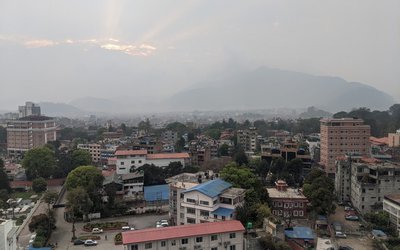Tamil Nadu has its own foreign policy regarding Sri Lanka. Mamata Banerjee scuttled any attempt by the PM to sign a river agreement with Bangladesh. Will Bihar have its own foreign policy regarding Nepal, Assam about Myanmar and Punjab about Pakistan?
What is remarkable about the Tamil Nadu Sri Lanka episode is that Ministry of External Affairs has taken a very sanguine approach, as it did with Mamata on the Teesta river issue. Do we now have a federal foreign policy? Coal blocks allocation seems to have been discussed between the Centre and the States at a leisurely pace for several years with no sense of urgency. The constitutional position on coal seems confusing with some parts of mining being on the Concurrent List and coal being on the Central List. Yet, allocations kept on being made and no one claims responsibility.
When P Chidambaram wanted to set up a National Counter-Terrorism Centre, he was stopped by a strong reaction from the States who saw anti-terrorism as a police issue and hence belonging to them. Terrorism is a new menace. Can it be presumed under the older division of subjects between the Centre and the States or do we need a new look at many of these issues?
The backbone of the Constitution, especially the financial arrangements and the division of subjects between Centre, State and Concurrent lists, is the Government of India Act 1935. It was itself based on the Simon Commission Report, joint Parliamentary Committees of the British Parliament with co-opted Indian members plus visits by Parliamentarians to India to discuss matters with local leaders. The result was debated in the House of Commons where four million words were recorded during the debates. Even the list of backward castes and tribes was prepared in a White Paper in 1931. Mandal Commission had to rely on the 1931 Census for the list of jatis. A lot of our present was created at that juncture. But the 1935 Act created confederal India with a weak Centre and powerful States. Because of Partition, leaders of independent India wanted to strengthen the Centre to avoid balkanisation. Nehru believed the Centre would also be the efficient instrument of development. Sixty-five years on, the question is: should we go back and re-examine the lists and even the broader federal arrangements?
One major effect of the scams and the scandals is that the Centre is no longer an efficient instrument for development or reform. We have many successful States where governance is better and the delivery of public services is exemplary. The Centre has too much power and not enough ability to avoid gross scandals and scams. Indeed, if we now complain about crony capitalism in India, paradoxically at its root is the tendency to put too much faith in government control, especially at the Centre.
It could be argued that these scams/scandals are purely products of UPA-II. But that will hardly do. There are cases of abuse going back to the Mundhra affair where LIC funds were used to shore up a dubious private company. There have been many scandals through the years—Bofors, the Tehelka exposure of the NDA—for us to assume that a change of the party in power at the Centre alone will improve matters. Whoever comes to power in 2014 is unlikely to have the clout to stop corruption.
De facto creeping decentralsiation as in the foreign policy is harmful. But if we can disperse economic power from the Centre to the periphery, the degree of corruption may be easier to tackle and the diversity of performance may speed up development.
India needs a national debate about the merits of decentralisation. It is good in some things such as development but bad in foreign policy. There has to be a single currency and a single citizenship. But beyond that, India needs a radical change in constitutional arrangements. A dysfunctional Parliament, a paralysed Cabinet, undemocratic political parties, an election system financed by black money, endangered minorities, and endemic corruption cannot go on forever.
http://www.indianexpress.com/news/all-change/999871/1
The Indian Express
- TANAHU HYDROPOWER PROEJCT: A Significant Achievement
- Apr 15, 2024
- AMBASSADOR HANAN GODAR: Sharing Pain With A Nepali Family
- Mar 30, 2024
- VISIT OF KfW AND EIB TO NEPAL : Mission Matters
- Mar 25, 2024
- NEPAL BRITAIN SOCIETY: Pratima Pande's Leadership
- Mar 24, 2024
- NEPAL ARMY DAY: Time To Recall Glory
- Mar 15, 2024
















